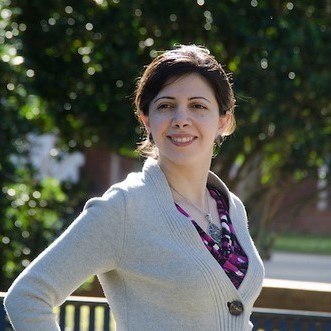Date: Tuesday 6 February 2024 – 14:30 (Europe/London)
Speaker: Dr Parisa Rashidi, Founding co-director of the Intelligent Critical Care Center (IC3) at the University of Florida (UF) and an associate professor at the J. Crayton Pruitt Family Department of Biomedical Engineering (BME)
Abstract
While monitoring critically ill patients through manual assessments and diagnoses is still considered the gold standard, manual methods impose severe time and personnel resource limitations. Many acute care indices are repetitively assessed by overburdened nurses, e.g., physical function. Other essential information about patients and their environment are not captured or captured in a non-granular manner, e.g., cognitive function or sleep disturbance factors such as bright light, loud background noise, patient agitation, or excessive visitations. There is a critical unmet need for real-time interpretable, dynamic, and precise patient assessment in the ICU that integrates pervasive sensing and Artificial Intelligence (AI) with continuous physiologic measurement and clinical data.
We have developed AI technology to augment clinical data, physiological, and biomarkers with pervasive sensing data to uncaptured or manually captured acute care indices. This forms the vision and our long-term goal of sensing, quantifying, and communicating a patient’s condition in a precise and interpretable manner.
The main goal of this talk is to expose the audience to the possibilities of using pervasive sensing and AI in acute care settings and how that can change the current practice. This will also open up the discussion on using intelligent and pervasive health technology in hospitals and what future hospitals will look like.
This seminar is now available on YouTube: https://youtu.be/E6rqguteA3g

Biography
Dr Parisa Rashidi is the founding co-director of the Intelligent Critical Care Center (IC3) at the University of Florida (UF) and an associate professor at the J. Crayton Pruitt Family Department of Biomedical Engineering (BME). She is also affiliated with the Electrical & Computer Engineering (ECE) and Computer and Information Science and Engineering (CISE) departments. Her research aims to bridge the gap between machine learning and patient care.
Dr Rashidi is a fellow of the American Institute for Medical and Biological Engineering (AIMBE), the National Science Foundation (NSF) CAREER awardee, the National Institute of Health (NIH) Trailblazer Awardee, Herbert Wertheim College of Engineering Leadership Excellence Awardee, Herbert Wertheim College of Engineering Assistant Professor Excellence Awardee, and a recipient of the UF term professorship. She also received UF’s Provost Excellence Award for assistant professors; with more than 500 tenure-track assistant professors at UF, Dr. Rashidi is one of only 10 to receive this award. She was invited by the National Academy of Engineering (NAE) as one of only 38 outstanding US engineers under 45 to participate in the EU-US Frontiers of Engineering (FOE) Meeting.
To date, she has authored 170+ peer-reviewed publications. She has chaired several workshops and symposiums on intelligent health systems and has served on the program committee of more than 20 conferences. Dr Rashidi’s research has been supported by local, state, and federal grants, including awards from the National Institutes of Health (NIBIB, NCI, and NIGMS) and the National Science Foundation (NSF).
